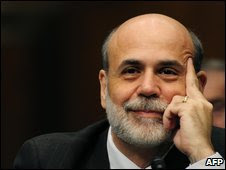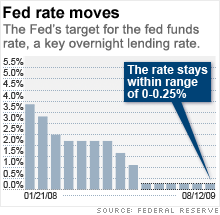
July 27 (Bloomberg) -- Purchases of new homes in the U.S. climbed 11 percent in June, the biggest gain in eight years, underscoring evidence that the deepest housing slump since the Great Depression is starting to stabilize.
Sales increased to a 384,000 annual pace, higher than every forecast in a Bloomberg News survey and the most since November, figures from the Commerce Department showed today in Washington. The number of houses on the market dropped to the lowest level in more than a decade.
Deutsche Bank Securities Inc. and Goldman Sachs Group Inc. economists said today’s figures signal an end to the slide in home construction and sales. While that means the drag on economic growth will turn to a stimulus in the second half of the year, property values are likely to continue falling and rising unemployment will temper the recovery, analysts said.
“We’re barely past the housing bottom, this thing is still fragile,” said Joseph LaVorgna, chief U.S. economist at Deutsche Bank Securities in New York. “It’s not premature to talk about home prices bottoming -- it’s somewhere in the next three to six months. There is light at the end of the tunnel.”
Builders’ stocks jumped, with the Standard and Poor’s Supercomposite Homebuilding Index gaining 4.4 percent. The broader S&P 500 Stock Index was up 0.3 percent to close at 982.18. Treasuries, which fell earlier in the day, remained lower, with benchmark 10-year note yields rising to 3.72 percent at 4:37 p.m. in New York from 3.66 percent at last week’s close.
Construction Recovers
The Commerce Department earlier this month reported that builders began work on 582,000 residential properties at an annual rate in June, the most since November. Home construction has subtracted from U.S. gross domestic product every quarter since the start of 2006.
The jump in sales signals the U.S. economy is on the way to recovery, said Rebecca Blank, under secretary for economic affairs at the Commerce Department.
“Across the board this is good news,” Blank, formerly a fellow at the Brookings Institution in Washington, said in an interview. “It’s what you would expect to see at the beginning of a recovery.”
Standard Pacific Corp., the U.S. homebuilder that gets most of its revenue from California, is among companies seeing stabilization. It’s net loss, the 11th consecutive drop, narrowed to $23.1 million in the second quarter from $249 million a year earlier, the Irvine, California-based company said last week. Revenue fell 29 percent.
Smaller Losses
“While we still obviously have not achieved the level of profitability that we ultimately need, we are a lot closer than we were a couple of quarters ago and believe that we are in pretty good shape in the short run,” Chief Executive Officer Ken Campbell said in a July 22 statement.
While prices continue to fall, the pace of the decline is easing. The S&P/Case Shiller index of 20 major metropolitan areas tomorrow may show property values fell 17.9 percent in May from a year earlier, according to the median forecast in a Bloomberg survey. The measure was down 18.1 percent in the 12 months ended April.
“In terms of residential investment and home sales and housing starts, I think it has” bottomed, said Jan Hatzius, chief U.S. economist at Goldman Sachs in New York, referring to the housing slump. “We still have a period of declines ahead of us” in prices, he also said.
The decline in prices and a drop in mortgage rates have started to lure buyers even amid the surge in unemployment, which reached a quarter-century high of 9.5 percent in June.
Economists’ Forecasts
Economists had forecast new home sales would rise to a 352,000, according to the median of 62 projections in a Bloomberg News survey. Estimates ranged from 335,000 to 377,000. Commerce revised May’s reading up to a 346,000 rate from a previously reported 342,000.
The median price of a new home decreased 12 percent to $206,200 from $234,300 in June 2008. Last month’s value compares with $219,000 in May.
Builders had 281,000 houses on the market last month, down 4.1 percent from May and the fewest since February 1998. The number of unsold properties fell a record 36 percent from June 2008. It would take 8.8 months to sell all homes at the current sales pace, the lowest level since October 2007.
Foreclosure filings reached a record in the first half of the year, providing competition for homebuilders and pushing down the value of all houses. Also, rising unemployment, which economists forecast will top 10 percent by early 2010, threatens to restrain any recovery in housing.
Fed Efforts
Federal Reserve policy makers have committed to a $1.25 trillion program to purchase securities backed by home loans in an effort to put a floor under the housing market and lower borrowing costs. Those purchases, as well as direct government purchases of Treasuries, drove the rate on 30-year mortgages to a record-low 4.78 percent in April, according to figures from Freddie Mac. Rates have since hovered around 5 percent.
Fed Chairman Bernanke said July 21 that the economy is showing “tentative signs of stabilization” and the “decline in housing activity appears to have moderated.”
Another incentive is the $8,000 tax credit for first-time buyers that is part of the Obama administration’s economic stimulus plan. Purchases have to be completed before Dec. 1.
(www.bloomberg.com)






